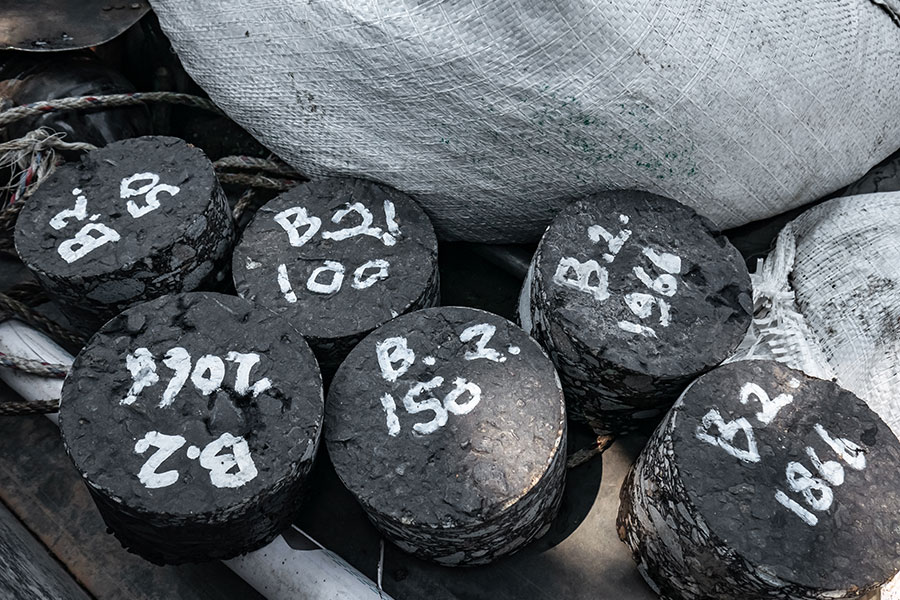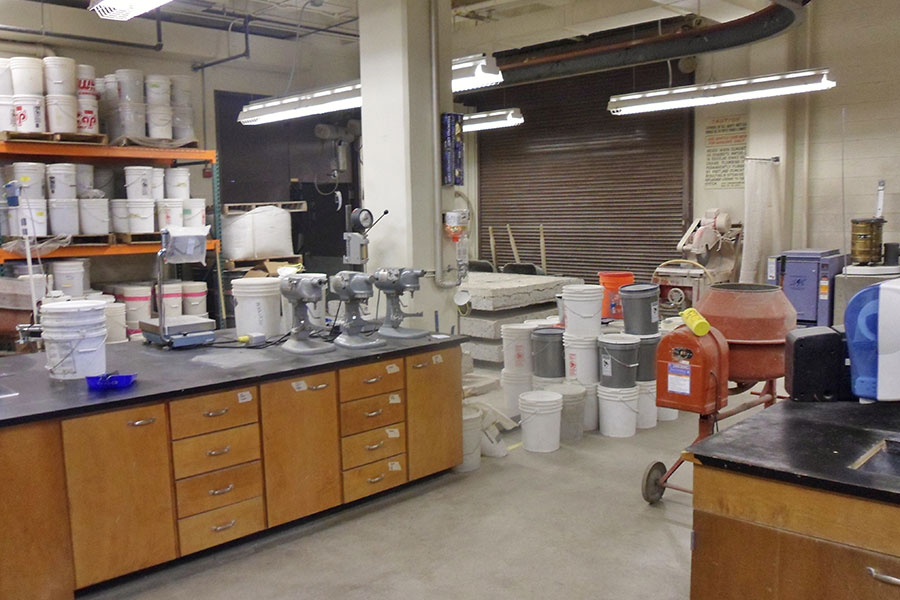Navigating Special Inspections for Construction Projects
In the complex world of construction, ensuring structural integrity and code compliance is paramount. Special inspections play a critical role in this process, serving as a crucial quality control measure required by building codes across the United States. At Omnant, we understand that navigating the special inspection process can be challenging, which is why we've created this comprehensive guide to help construction professionals understand and efficiently manage special inspections.
Understanding Special Inspections
Special inspections are specialized quality assurance examinations mandated by the International Building Code (IBC) Chapter 17. Unlike routine building inspections, special inspections focus on critical structural elements and construction processes that affect public safety. These inspections must be conducted by qualified professionals with specific certifications related to the inspected elements.
The IBC defines special inspections as "inspections of construction requiring the expertise of an approved special inspector in order to ensure compliance with this code and the approved construction documents." This requirement emerged following investigations into structural failures that highlighted the necessity for additional oversight during construction of complex or critical building components.
Special inspections are typically required for:
- High-rise buildings
- Essential facilities like hospitals and emergency response centers
- Structures with complex structural systems
- Projects with unusual design features
- Construction utilizing specialized materials or techniques
The difference between standard inspections and special inspections lies primarily in their scope and who performs them. While standard inspections are conducted by local building officials and cover general code compliance, special inspections are performed by certified specialists who focus on specific critical components and require more detailed technical knowledge.
The Special Inspection Process
Implementing special inspections follows a systematic process that begins well before construction starts:
1. Project Assessment
Determine which special inspections are required based on the project's scope and the applicable building codes.
2. Statement of Special Inspections
A registered design professional must prepare this document outlining the required inspections for the project. This statement becomes part of the permit documentation and serves as the roadmap for inspection activities throughout construction.
3. Inspector Selection
The owner must engage qualified special inspectors or inspection agencies with the appropriate certifications for each required inspection type.
4. Pre-Construction Meeting
All stakeholders should meet to review the statement of special inspections, establish communication protocols, and clarify expectations.
5. Inspection Implementation
Throughout construction, special inspectors conduct field inspections at specified intervals, documenting their findings on special inspection forms.
6. Discrepancy Resolution
When issues are identified, special inspectors communicate these to the appropriate parties for resolution before work proceeds.
7. Final Reporting
Upon project completion, a final report confirming compliance with the Statement of Special Inspections is submitted to the building official.
Documentation is a critical component of the special inspection process. Special inspection forms must be meticulously maintained, providing a verifiable document control log that becomes part of the building's permanent documentation.
Types of Special Inspections
Different construction components require specialized inspection expertise:
Concrete Inspections
Concrete inspections ensure that reinforced concrete elements meet design specifications and construction materials testing requirements. These inspections typically cover:
- Verification of reinforcing steel placement
- Concrete mix design review
- Sampling and testing of fresh concerte
- Monitoring of concrete placement and curing procedures
- Post-placement inspection for proper strength development
ICC-certified reinforced concrete special inspectors are specifically trained to evaluate these critical components.
Structure Steel Inspections
Structural steel inspections represent one of the most technically demanding aspects of the special inspection process, requiring specialized knowledge across multiple disciplines. These inspections must be performed at various stages – from material delivery through final erection and completion – to ensure the structural integrity of the building.
Unlike concrete, which slowly gains strength over time, steel connections are typically completed and loaded almost immediately, making thorough inspection critical before subsequent work conceals these elements. Special inspectors must be thoroughly familiar with structural steel design principles, welding processes, bolting techniques, and specific code requirements outlined in AISC specifications.
The comprehensive nature of structural steel inspections helps prevent catastrophic structural failures that could result from seemingly minor deficiencies in materials or workmanship. A complete structural steel inspection program focuses on:
- Verification of steel properties and certifications
- Inspection of connections, including bolting and welding
- Review of fireproofing application
- Assessment of composite construction elements
Other Specialized Inspection Services
Depending on the project, additional specialized inspection services may be required. These services can include soils and foundation inspections, checks on sprayed fire-resistant materials, reviews of exterior insulation and finish systems, evaluations of smoke control systems, and assessments of wind and seismic resistance components. The complexity and frequency of these inspections vary based on the project type, size, and location, with high-risk structures typically requiring more rigorous oversight.
Choosing the Right Special Inspection Provider
Selecting a qualified inspection agency is crucial for ensuring compliance and construction quality. When evaluating potential providers, consider:
Inspector Qualifications
Special inspectors should possess appropriate certifications from recognized organizations like the International Code Council (ICC). Different inspection types require specific certifications, such as ICC Reinforced Concrete Special Inspector or Structural Steel and Bolting Inspector certifications.
Benefits of Third-Party Inspection Services
When choosing special inspection services, third-party inspection companies provide distinct advantages over in-house options. These independent firms offer truly objective evaluations without the conflicts of interest that can arise when inspectors are employed by the contractor or owner. Their specialized expertise typically spans multiple disciplines, allowing for comprehensive coverage across all required inspection types through a single point of contact.
Most established third-party inspection companies have developed deep familiarity with local code requirements and jurisdictional nuances, helping projects navigate complex regulatory landscapes efficiently. Their consistent quality control practices, refined through experience across numerous projects, ensure reliable, standardized inspection processes.
Additionally, these firms maintain comprehensive documentation systems specifically designed for special inspections, ensuring that all records are properly organized, stored, and accessible for code officials and project stakeholders throughout the construction process and beyond.
Special Inspections Compliance by Region
Special inspection requirements can vary significantly between jurisdictions, with some areas implementing additional requirements beyond the base IBC provisions.
NYC Special Inspections
New York City has one of the most comprehensive special inspection programs in the country, governed by the NYC Building Code Chapter 17 and administered by the Department of Buildings (DOB). NYC special inspections have unique features including:
- TR1 inspections that require registration with the city
- Special inspection agencies must be approved by the DOB
- More extensive documentation requirements
- Specific qualifications for special inspectors working in NYC
Navigating Local Building Department Requirements
To successfully navigate local requirements:
- Consult with the local building department early in the planning process
- Review jurisdiction-specific forms and documentation needs
- Verify that your inspection agency has experience with local requirements
- Consider engaging a third-party inspection company familiar with local nuances
Understanding these regional variations is essential for properly budgeting and scheduling special inspections across different project types and locations in our CMT and engineering projects.
Beyond Compliance: Special Inspections as Your Project's Foundation for Success
Special inspections are a critical quality assurance measure that protects public safety and ensures construction integrity. When implemented properly, special inspection services help projects avoid costly errors, reduce liability, and proceed more efficiently.
By understanding the special inspection process, preparing appropriate documentation, and engaging qualified special inspectors, construction teams can transform what might seem like a regulatory burden into a valuable quality control asset.
Whether your project requires concrete inspections, structural steel inspections, or other specialized inspection services that rely on precise equipment tracking and calibration, having a knowledgeable inspection partner is invaluable. Omnant's team of certified special inspectors is ready to help you navigate the complexities of construction compliance across all project phases.
Need Expert Special Inspection Services?
Contact Omnant to discuss your project's special inspection needs and discover how our experienced team can help ensure your construction project meets all applicable code requirements while maintaining your schedule and budget targets.
Share this Post:
Related Blog Post
Start streamlining your inspection and CMT testing processes with Omnant's integrated solution. Contact us today to learn how our software can support your goals for operational excellence.



